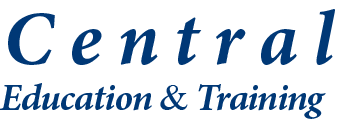
Levels and Qualifications Explained
Qualifications: what the different levels mean
A qualification shows employers, teachers and learners what you have learnt and what you can do as a result of that learning. In the UK, most qualifications fit into one of nine levels. The higher the level, the harder the qualification. The levels are based on the standards of knowledge, skill and competence needed for each qualification. Qualifications at the same level can be very different in terms of content and the length of time they take to complete.
Level 1
This is a good place to start if you are new to a subject and would like to improve your basic knowledge.
What do I need?
GCSE grades C to E and you must want to learn.
What will I get?
You’ll finish your course with new practical skills for work and daily life, work experience, personal development and an introduction to your subject.
Level 2
Improving your subject knowledge.
What do I need?
As well as knowledge or experience of your subject, you’ll also need four GCSE grades C to E or a Level 1 course. For an apprenticeship you may not need as many as this.
It is possible to start at this Level on a completely new subject to you – but this will depend on your GCSE grades. Please ask our Progression team for advice.
For the Level 2 Higher Diploma, you will need four GCSEs, including English and Maths at grade D or above, and a minimum grade C in two other subjects or a Level 1 course such as a NVQ 1 or BTEC introductory certificate or Diploma.
What will I get?
You’ll finish your course with a good general education, good work habits, problem-solving skills, resourcefulness, subject knowledge and skills for lower-level jobs. This is the minimum Level that most employers will ask for when you go for a job.
Level 3
With this level of qualification you can then go onto university/degree-level qualifications or a good job with more detailed study.
What do I need?
A minimum of five GCSE grades A*-C or a Level 2 course, but some A Levels require more.
What will I get?
You’ll finish your course with good problem solving skills, being able to learn and adapt independently, able to manage work relationships and business knowledge. Most universities ask for this Level qualification and more and more employers look for applicants who are qualified to this level.
Level 4 and 5
In-depth study will help you become a specialist in your area.
What do I need?
Level 3 qualifications
A Levels
Extended Diploma
Access to Higher Education
NVQ Level 3 or 120 UCAS points.
What will I get?
You’ll finish your course with advanced problem-solving skills, business knowledge, relationship management skills, and leadership and project management skills.
